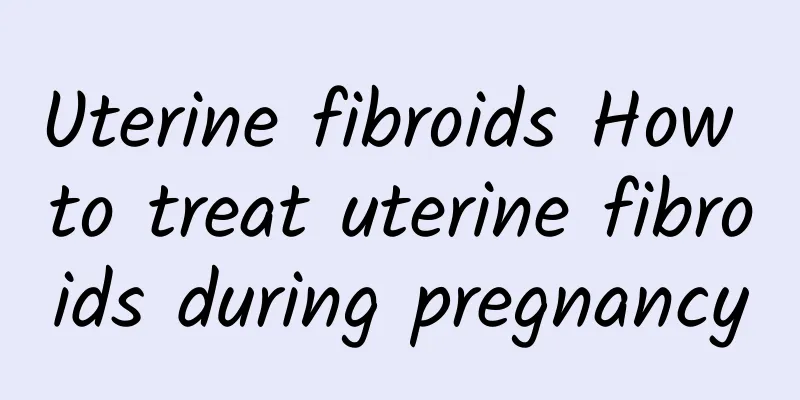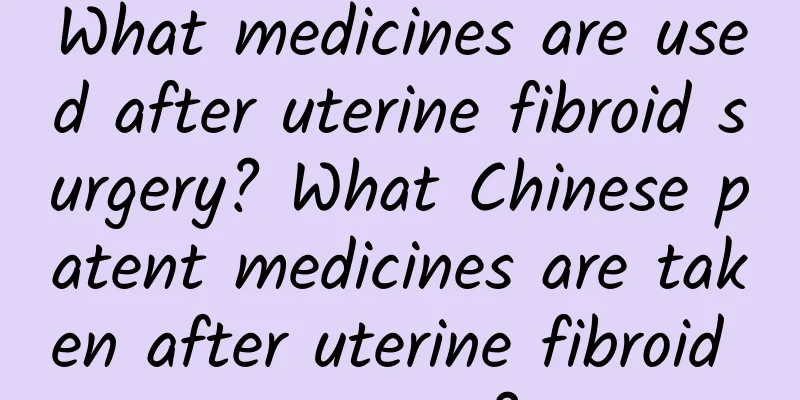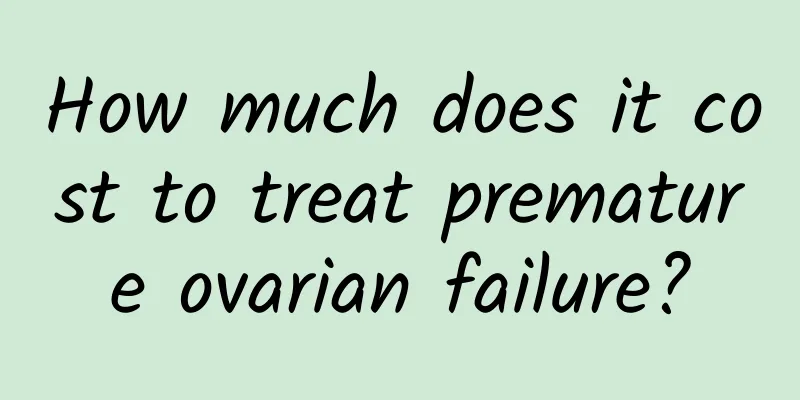Uterine fibroids How to treat uterine fibroids during pregnancy

|
Uterine fibroids have an absolute impact on pregnancy, but the depth of the degree depends on the severity of the disease and the location of the fibroids. Since the diameter of the fibroids is less than 4cm, people with a good growth location can get pregnant normally, but may not be able to give birth healthily. When the diameter of the fibroids exceeds 4cm, pregnancy plans will definitely be malignantly interfered with. How to treat uterine fibroids? The following are several situations. The treatment of uterine fibroids discovered after pregnancy should be determined based on factors such as the month of pregnancy, size of the fibroids, and clinical manifestations: 1. First of all, you should strictly control your sexual life to minimize the incidence of miscarriage and infection. If necessary, you should avoid moderate or above physical labor and bed rest. 2. Early pregnancy: After pregnancy, uterine fibroids may grow rapidly, and thrombosis may cause red degeneration, which manifests as lower abdominal pain, nausea, vomiting, fever, etc. Most of the pain can be relieved by itself, but cannot be relieved by myomectomy. 3. Late pregnancy: Patients with uterine fibroids may have incorrect fetal position, and delivery may cause uterine contraction fatigue and delayed labor. At this time, doctors need to take measures according to the specific situation, such as cesarean section, fibroid stripping, etc. In order to prevent the occurrence of malignant lesions of uterine fibroids, women should develop the habit of regular physical examinations, early detection of uterine fibroids, early elimination of malignant lesions, and prevention of the spread of the disease. Radiofrequency ablation does not require opening at all. The operation is performed under the full monitoring of the monitoring screen with dynamic B-ultrasound guidance and superconducting needle intervention in the lesion. The temperature is accurately controlled, normal tissues are not damaged, and the lesion site is accurately intervened. The lesion tissue is dehydrated, coagulated, and necrotic by biological high heat, and is absorbed by normal tissues and automatically discharged. Thus, uterine fibroids are eliminated without affecting the normal function of the uterus. Warm reminder: In the face of the disease, do not panic, trouble, just choose a regular obstetrics and gynecology hospital, according to the patient's own situation and the characteristics of the disease, preventive care and clinical treatment, while paying attention to stay optimistic, build confidence in the disease, regular physical examinations, and learn reasonable and scientific self-regulation in daily life, you can achieve good treatment and prevention purposes. In addition, the author should emphasize that the incidence of serious complications is very low, so most of the time, uterine fibroids accompany pregnant women until delivery and will not have a significant impact. |
Recommend
The most important nursing care for ectopic pregnancy
Among gynecological diseases, ectopic pregnancy i...
Vulvar leukoplakia is not a precancerous lesion
Recently, Ms. Li went to a hospital's obstetr...
Why do I bleed again just a few days after my period? Here is the answer
If this happens between two periods and the amoun...
What causes ovarian and fallopian tube tuberculosis?
What causes ovarian and fallopian tube tuberculos...
Understanding the precautions for adnexitis is the key
Adnexitis brings a lot of unspeakable pain to our...
How much does it cost to test for adenomyosis?
We know that a disease needs to be diagnosed thro...
In life, we must take good care of pelvic inflammatory disease
Nowadays, there are more and more patients in gyn...
Should I apply ice or heat first when I get hurt? Nutritionists help you decipher exercise myths!
In recent years, the trend of exercising has beco...
Treatment of congenital absence of vagina
Congenital vaginal embryos are obstructed by inte...
There are three main causes of ovarian cysts
Ovarian cyst is a common gynecological disease an...
What causes bacterial vaginosis? If there is a problem, it must be treated actively
Women who suffer from bacterial vaginosis are not...
Let me explain the causes of vulvar leukoplakia
Vulvar leukoplakia is a chronic disease among gyn...
What are the common methods for treating adnexitis?
What are the common methods for treating adnexiti...
What to eat after uterine fibroid surgery Dietary care methods after uterine fibroid surgery
The incidence of uterine fibroids is gradually in...
What is the cause of cervical erosion?
Cervical erosion is not a real "disease"...









